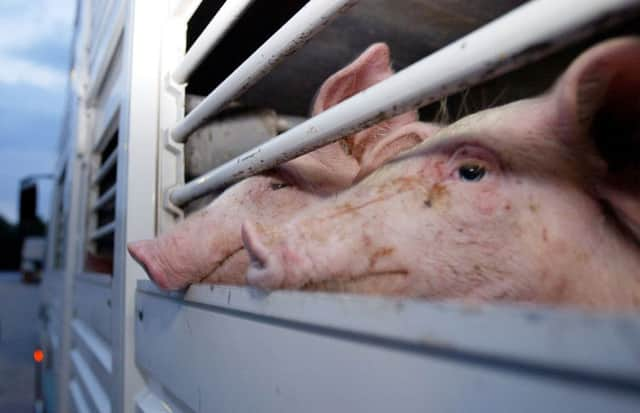Scientists at Roslin Institute alter DNA to produce ‘disease resistant’ pigs


Boffins at University of Edinburgh’s Roslin Institute – where scientists famously created Dolly the Sheep – have used the technology to produce pigs that are resistant to disease.
Now they want to test attitudes towards gene editing in livestock and find out whether people would eat meat from an animal that has had its DNA altered.
Advertisement
Hide AdAdvertisement
Hide AdTheir responses will be used to “inform research”, the Institute says.
It is hoped the technological advance could be used to help better shield livestock in developing nations from disease and changed to their natural environment.
Gene editing involves altering some of the individual “letters” that make up an animal’s genetic code.
The technology can be used to introduce characteristics into animals, or indeed plants, such as resistance to a specific disease or improved adaptation to different environments.
Advertisement
Hide AdAdvertisement
Hide AdHowever, professor Bruce Whitelaw, of the Institute, said the practice still attracted moral objections.
He said: “It is no longer a question of whether we can use gene editing technology to improve livestock health, but rather whether we should use it.”
“We need to better understand public opinion to inform how these technologies are used and also how they should be regulated.”
Researchers at the Institute have used gene editing to produce pigs that are resistant to a disease called porcine reproductive and respiratory syndrome, which causes pig producers significant losses worldwide.
Advertisement
Hide AdAdvertisement
Hide AdTeams at Roslin are working with experts at the Centre for Tropical Livestock Genetics and Health in Edinburgh and in Africa to explore how the technology could be used to benefit production animals in tropical climates.
The goal is to improve the health and welfare of farmed animals around the world, and to improve the security of food supplies in low and middle-income countries.
Professor Appolinaire Djikeng, Director of the Centre for Tropical Livestock Genetics and Health, said: “Livestock farming is a reliable source of food for people living in extreme poverty and creates economic opportunities for farmers in low and middle-income countries.
“With equitable partnerships and wider stakeholder engagement, gene editing could provide opportunities to produce healthier and more resilient animals for vulnerable farmers, and help address some of the challenges associated with rearing animals in tropical climates.”
Advertisement
Hide AdAdvertisement
Hide AdScientists insist that the changes introduced in gene editing are the same as those that could occur spontaneously in nature.
Most natural changes either have no impact or are harmful to the animal. With gene editing, precise changes that are likely to be beneficial can be introduced.
The approach does not involve transferring genes from one species to another and is different from transgenic techniques, which often do.